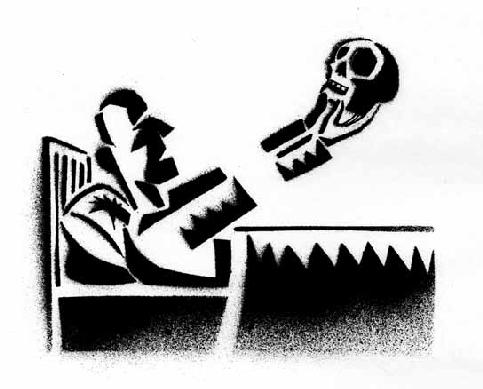risk factors for suicide
Unfortunately, depression is not uncommon among teenagers. At this age, people are
mature enough to think about important issues, including death, but not necessarily emotionally
equipped to deal with them. Teenagers are also beginning to find their own identity, a process
that may be as simple as disagreeing with their parents over music and clothing, or as profound as
wondering about the religion they were brought up in, or as personal as questioning their sexuality.
Sometimes all of this becomes overwhelming.
When should you worry that someone who seems depressed might commit suicide?
This was the question that I wanted to answer when I decided to research teen depression, and it's not
an easy one to answer. It depends on the person and the situation. But here are some risk factors
(from SafeYouth.org, the website of the National Youth Violence Prevention Resource Center) that seem to
play a role.
Risk factors for teen suicide
- Previous suicide attempts
- History of depression
- History of substance abuse, including alcohol
- Family history of mental disorders, substance abuse, or suicide
- Stressful situation or loss
- Easy access to guns
- Exposure to other teenagers who have died by suicide (even if they didn't know the
person who committed suicide)
Here are some risk factors for people in general.
Personal and social factors
- Male
- Age over 60 years
- History of a previous suicide attempt
- History of suicide or mood disorder in family
- Recent separation, divorce, or widowhood
- Social isolation, with real or imagined unsympathetic attitude
of relatives or friends
- Personally significant anniversaries, such as the anniversary
of a loved one's death
- Unemployment or financial difficulties, particularly if they
have caused a drastic fall in economic status
- Alcohol or drug abuse
- Detailed suicide planning and taking precautions against being
discovered
- Recent humiliating life experience
Mental and physical factors
- Depression (especially manic-depressive illness)

- Agitation, restlessness, and anxiety
- Feelings of guilt, inadequacy, and hopelessness
- Self-denigrating talk or demeanor
- Impulsive, hostile personality
- Delusional conviction of having cancer, heart disease, or another
serious disease
- Hallucinations in which a voice commands a suicide attempt
- Physical illness that is chronic, painful, or disabling, especially
if the person has previously been healthy
- Use of drugs, such as reserpine, that can cause severe
depression

